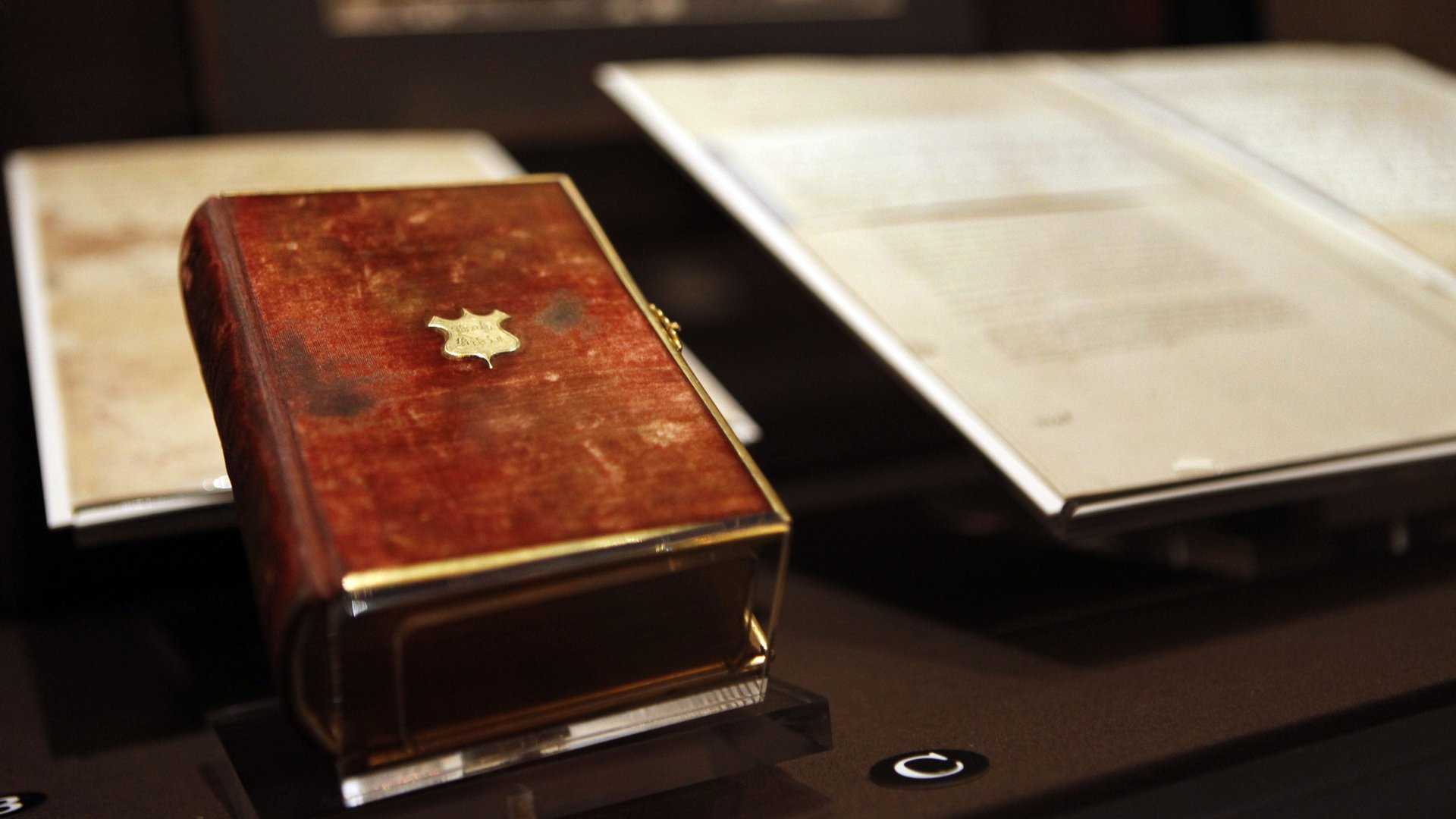Donald Trump will be the third US president to be sworn in on the Lincoln bible
The US presidential inauguration features several intriguing traditions, including the incoming president’s ability to choose a bible for his (or her) swearing-in. In advance of his own inauguration on Jan. 20, Donald J. Trump has picked the so-called “Lincoln bible”—a burgundy velvet-bound volume that was used during Abraham Lincoln’s inauguration in 1861—as well as a bible Trump’s mother gave him when he graduated Sunday school in 1955.


The US presidential inauguration features several intriguing traditions, including the incoming president’s ability to choose a bible for his (or her) swearing-in. In advance of his own inauguration on Jan. 20, Donald J. Trump has picked the so-called “Lincoln bible”—a burgundy velvet-bound volume that was used during Abraham Lincoln’s inauguration in 1861—as well as a bible Trump’s mother gave him when he graduated Sunday school in 1955.
The Lincoln bible was not a cherished Lincoln family possession at the time of his inauguration. As a Library of Congress official explained to US News, it was loaned to Lincoln for the ceremony by William Thomas Carroll, clerk of the Supreme Court. After Lincoln’s assassination, the bible was passed to his family, and remained in their possession until 1928, when it was donated to the library.
Barack Obama is the only other president to use the Lincoln bible for his swearing in, besides Lincoln. (The bible used during George Washington’s inauguration has been used by four other presidents.) Obama chose it to celebrate American unity, a spokesman said during his 2009 inauguration. The decision was widely interpreted as inspired by Lincoln’s freeing of slaves, and Obama’s African heritage.
A spokesman for Trump’s inauguration committee said the president-elect was also inspired by Lincoln’s words. “In his first inaugural address, President Lincoln appealed to the ‘better angels of our nature,’” Tom Barrack, chairman of Trump’s presidential inauguration committee, said in a statement on Tuesday. “As he takes the same oath of office 156 years later, President-elect Trump is humbled to place his hand on Bibles that hold special meaning both to his family and to our country.”
The reference is to the last line of Lincoln’s address:
We are not enemies, but friends. We must not be enemies. Though passion may have strained it must not break our bonds of affection. The mystic chords of memory, stretching from every battlefield and patriot grave to every living heart and hearthstone all over this broad land, will yet swell the chorus of the Union, when again touched, as surely they will be, by the better angels of our nature.